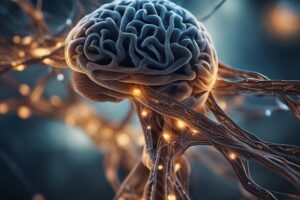Understanding the connection between autism and intellectual disability is crucial for providing effective support and care for individuals affected by these conditions. Autism Spectrum Disorder (ASD) is often associated with intellectual disability, with studies showing a high prevalence of intellectual impairment among individuals with autism. This link poses challenges in diagnosis, treatment, and management strategies. To learn more about Autism Spectrum Disorder, visit Autism Spectrum Disorder. It is essential for healthcare professionals, caregivers, and society as a whole to be aware of this association to provide appropriate interventions and support for individuals with these co-occurring conditions.
Key Takeaways:
- Autism and intellectual disability often co-occur: Research has shown that there is a strong link between autism and intellectual disability, with a significant number of individuals with autism also having intellectual disabilities.
- Distinct differences between the two: While autism and intellectual disability can coexist, they are separate conditions with distinct characteristics. Autism is a neurodevelopmental condition that affects social communication and behaviour, while intellectual disability relates to limitations in intellectual functioning and adaptive behaviours.
- Individualised approach is crucial: It is important to recognise the unique needs of individuals with autism and intellectual disability and provide personalised support and interventions that address their specific challenges and strengths.
Understanding Autism
Autism Spectrum Disorder Overview
Autism Spectrum Disorder (ASD) is a complex neurodevelopmental condition that impacts an individual’s social interaction, communication skills, and behaviour. People with ASD may have difficulty with social cues, understanding non-verbal communication, and forming relationships. The spectrum ranges from mild to severe, with each person experiencing a unique combination of symptoms.
ASD affects approximately 1 in 100 people in the UK, making it one of the most common neurodevelopmental disorders. It is a lifelong condition that is typically diagnosed in early childhood. While the exact cause of ASD is still unknown, research suggests a combination of genetic and environmental factors may play a role in its development.
Core Characteristics
The core characteristics of ASD include challenges in social communication and interaction, repetitive behaviours, and sensory sensitivities. Individuals with ASD may struggle to understand social norms, express themselves effectively, or engage in reciprocal conversations. They may also display repetitive movements or behaviours, such as hand-flapping or lining up objects, and experience sensory sensitivities to light, sound, or touch.
It is important to note that individuals with ASD have diverse strengths and abilities, and may excel in areas such as art, music, mathematics, or special interests. While some individuals with ASD may have intellectual disabilities, others may have average or above-average intelligence. Understanding the individual needs and strengths of each person with ASD is crucial in providing effective support and interventions.

Understanding Intellectual Disability
In this chapter, we probe into the complex relationship between autism and intellectual disability. Understanding the nuances of intellectual disability is crucial to grasp the challenges faced by individuals affected by this condition.
Definition and Criteria
Intellectual disability is characterised by limitations in intellectual functioning and adaptive behaviour, which manifest before the age of 18. These limitations impact an individual’s everyday social and practical skills. The criteria for diagnosing intellectual disability include an IQ below 70 and difficulties in areas such as communication, self-care, and social interactions.
It is essential to note that intellectual disability is not solely determined by IQ scores, as adaptive behaviour plays a significant role in assessing an individual’s capabilities. Early intervention and support are crucial to enhance the quality of life for individuals with intellectual disability.
Levels of Intellectual Disability
Intellectual disability is categorised into four levels based on the severity of limitations in intellectual functioning. These levels range from mild, moderate, severe, to profound. Each level presents unique challenges and requires individualised support to help individuals reach their full potential.
Individuals with mild intellectual disability may struggle with complex tasks and benefit from support in certain areas, whereas those with profound intellectual disability require more intensive assistance with daily activities and may have limited communication skills. Understanding these levels is essential for tailored intervention strategies to maximise individuals’ abilities and promote their independence.

Exploring the Connection
When it comes to understanding the link between autism and intellectual disability, a variety of factors come into play. Exploring these connections can shed light on the complex relationship between the two conditions and how they may intersect.
Genetic and Environmental Factors
Within the realm of autism and intellectual disability, the relationship between genetic and environmental factors is of paramount importance. Research suggests that both genetics and environmental influences contribute to the development of these conditions. Genetic codes play a crucial role in determining susceptibility to autism and intellectual disability, while environmental factors such as prenatal exposures and early childhood experiences can also impact the manifestation of these conditions. Perceiving the intricate interplay between these elements is vital in comprehending the link between autism and intellectual disability.
Co-occurrence of Autism and Intellectual Disability
The co-occurrence of autism and intellectual disability is a frequently observed phenomenon in clinical settings. Individuals diagnosed with autism often exhibit varying degrees of intellectual challenges, ranging from mild to severe. This overlap in diagnoses can present unique challenges in understanding and addressing the needs of individuals who experience both conditions simultaneously. Perceiving the intricate relationship between autism and intellectual disability is essential for providing tailored support and interventions.
It is important to note that while not all individuals with autism have an intellectual disability, the co-occurrence of these conditions highlights the complexity and diversity within the autism spectrum. Understanding this co-occurrence can lead to improved diagnostic accuracy and the development of more effective interventions that address the unique needs of individuals with both autism and intellectual disability.

Clinical Implications and Management
Diagnostic Challenges
Diagnosing autism in individuals with intellectual disabilities can be particularly challenging, as the symptoms of both conditions can overlap and mask each other. Intellectual disability can affect communication and social skills, which are also key features of autism. This can lead to misdiagnosis or delayed diagnosis, impacting the appropriate support and interventions that should be in place.
It is crucial for clinicians to conduct thorough assessments that take into account the unique presentation of autism in individuals with intellectual disabilities. This may involve using specialised tools and working closely with multidisciplinary teams to ensure an accurate diagnosis and tailored management plan.
Treatment Strategies and Support
Developing treatment strategies for individuals with autism and intellectual disabilities requires a comprehensive and individualised approach. This may include behavioural interventions, speech and language therapy, occupational therapy, and social skills training. Early intervention and ongoing support are key to improving outcomes for individuals with this dual diagnosis, helping them to reach their full potential and lead fulfilling lives.
It is essential for families and caregivers to have access to specialist services and support to help manage the unique challenges that come with autism and intellectual disability. Collaboration between healthcare professionals, educators, and community services is essential in providing holistic care that meets the diverse needs of individuals with this complex presentation.
The Link Between Autism and Intellectual Disability
In summarization, the link between autism and intellectual disability is a complex and intricate one. While not all individuals with autism have intellectual disabilities, research has shown a higher prevalence of intellectual disability among those diagnosed with autism. Understanding this link is crucial for providing appropriate support and interventions for individuals on the autism spectrum who may also have intellectual disabilities. Further studies and research are needed to examine deeper into this relationship and develop targeted strategies to improve the quality of life for those affected by both conditions. By increasing awareness and knowledge about this link, we can work towards creating a more inclusive and supportive society for individuals with autism and intellectual disabilities.
FAQ
Q: What is the link between Autism and Intellectual Disability?
A: Autism and Intellectual Disability are two separate conditions, but they can co-occur. Research suggests that around 30-70% of individuals with Autism also have Intellectual Disability.
Q: How does Autism differ from Intellectual Disability?
A: Autism is a neurodevelopmental disorder that affects social interaction, communication, and behaviour, while Intellectual Disability involves limitations in cognitive functioning and adaptive behaviours.
Q: What are the common characteristics of individuals with both Autism and Intellectual Disability?
A: Common characteristics include challenges in social communication, repetitive behaviours, sensory sensitivities, and difficulties in adaptive functioning.
Q: Is there a genetic link between Autism and Intellectual Disability?
A: Genetic factors are known to play a role in both Autism and Intellectual Disability, and in some cases, specific genetic mutations or abnormalities may be associated with both conditions.
Q: How are Autism and Intellectual Disability diagnosed?
A: Diagnosis involves comprehensive assessments by healthcare professionals, including developmental history, behavioural observations, cognitive testing, and screening for co-occurring conditions.
Q: What interventions are available for individuals with Autism and Intellectual Disability?
A: Interventions may include behavioural therapies, speech and language therapy, occupational therapy, educational support, and adaptive skills training tailored to the individual’s needs and strengths.
Q: Can early intervention improve outcomes for individuals with Autism and Intellectual Disability?
A: Early intervention has been shown to lead to improved outcomes for individuals with Autism and Intellectual Disability by addressing core symptoms, promoting skill development, and enhancing quality of life.






